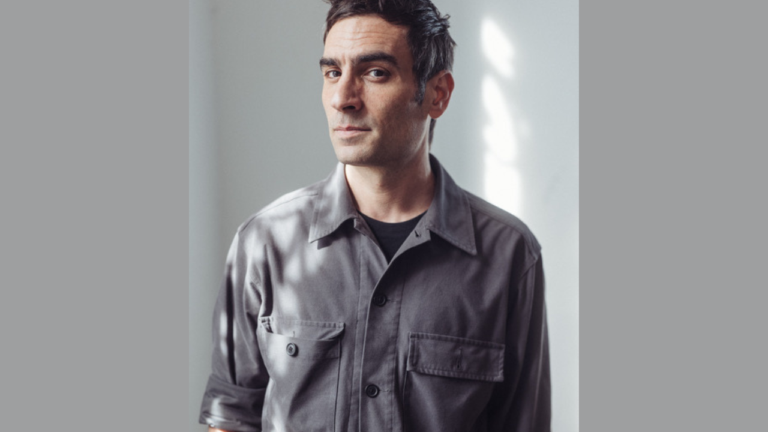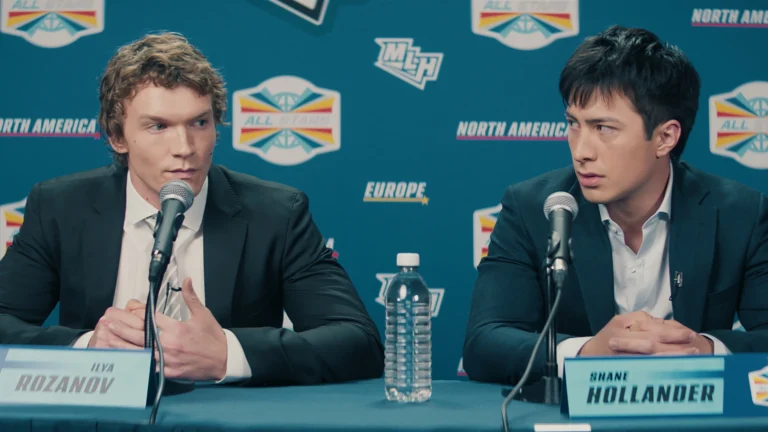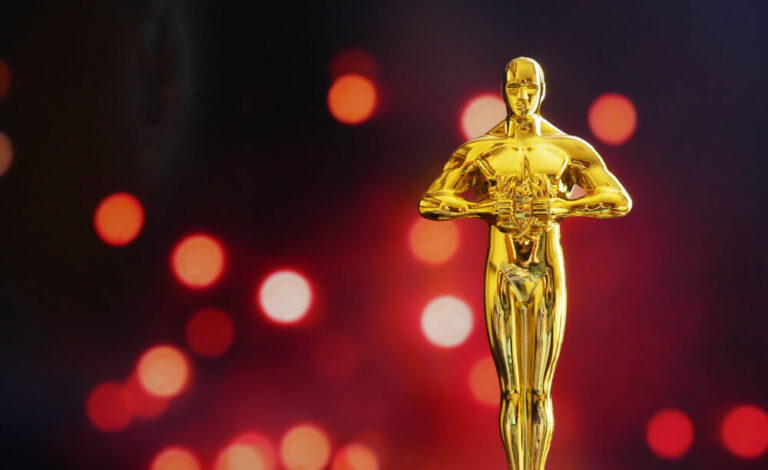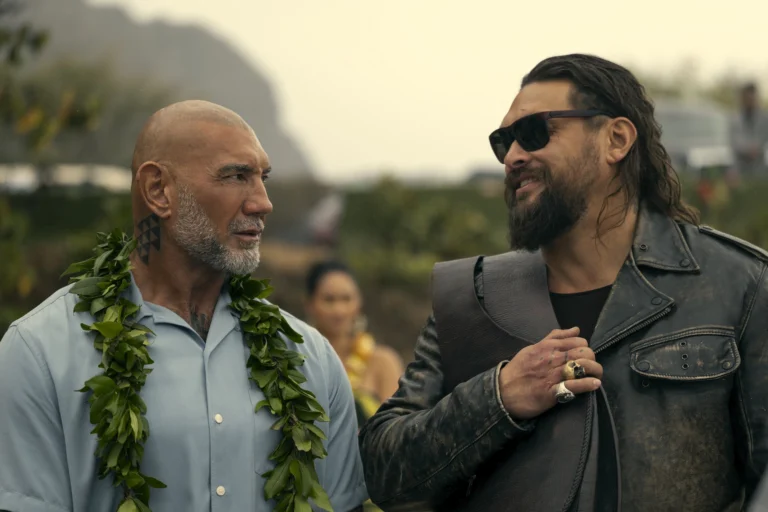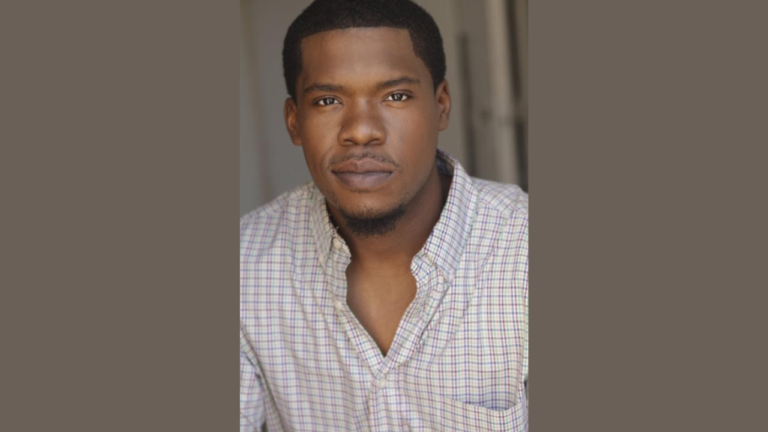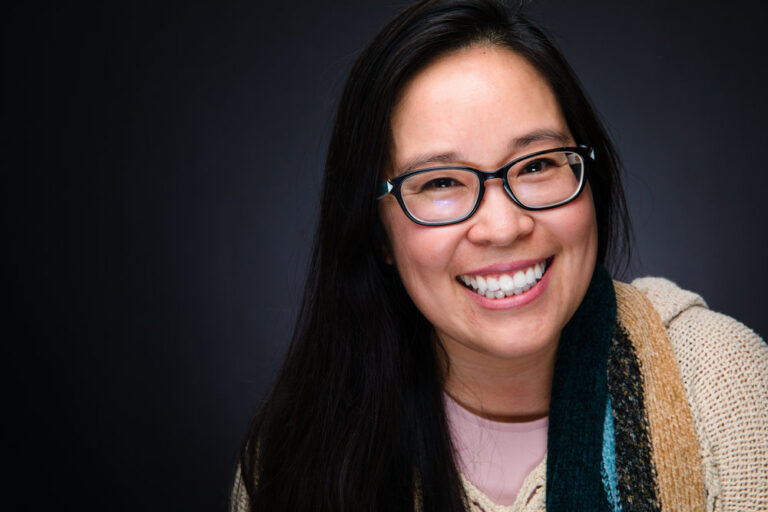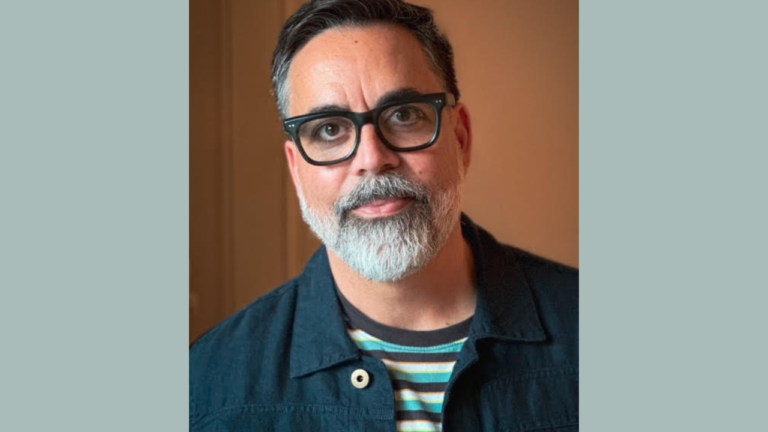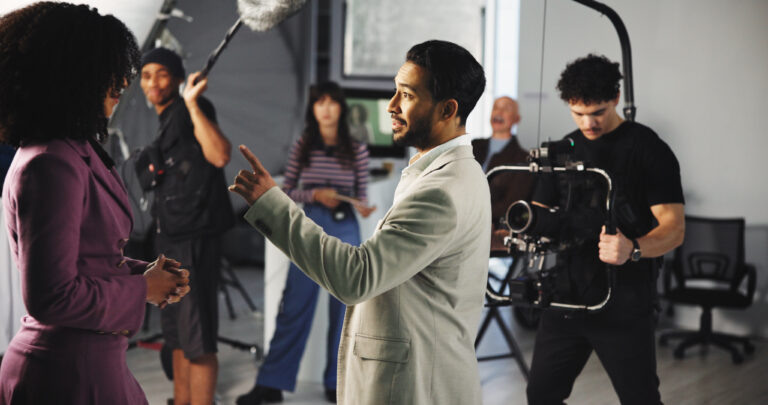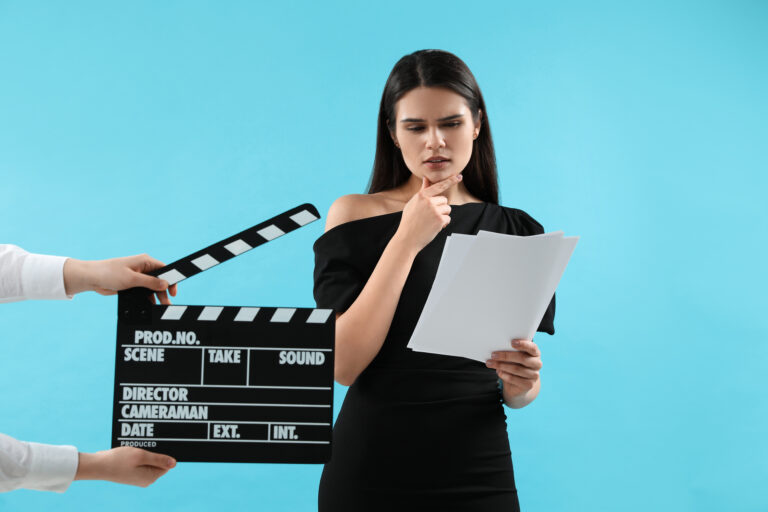They say that Aussies are more fun, and in the case of casting team Alison Telford and Kate Leonard, that is unquestionably true.
Winners of both Australian Academy Awards and Australian Casting Guild awards, the pair has worked on major projects together, including the Robbie Williams biopic Better Man, the Apple TV+ adaptations of Shantaram and Time Bandits and the uproarious cop show Deadloch, now available on Amazon Prime. They’re the real deal and have been for years.
They’re also great to talk to, in a conversation filled with laughter and finishing each other’s sentences. Their latest project is the horror film Together, starring real-life married couple Alison Brie and Dave Franco. It hits theaters July 30. They spoke to us from their respective homes in Melbourne.
Insights: Lessons from Alison Telford and Kate Leonard
- Trust your instincts and don’t overthink self tapes. Avoid endless retakes; often your natural first or second take is best.
- Be present and engaged in auditions. Focus on listening and being in the moment rather than overanalyzing your performance.
- Remember casting directors are on your side. Approach auditions knowing the casting team is excited to see you succeed and is rooting for you.
How did you each get into casting in the first place?
Kate Leonard: I started in extras casting. I was about 19. I was studying at uni, and I did work experience on a film here, Ned Kelly with Heath Ledger.
I met a whole bunch of people who worked in the film industry, and after that experience, they asked me which department I wanted to work in. I didn’t know anything about film, but I was just like, “Casting. If there’s anything in casting, that sounded like the funnest part.” They put me in extras casting.
The whole thing was set in early 1900s Australia, so it was all lots of men on horseback with beards that we had to cast, and there were hundreds and hundreds of them. I thought it was fun, so I then did extras casting for 10 years.
I met Alison when she was the casting director at the ABC [Australian Broadcasting Company]. Chris Lilly did a show called Angry Boys, and we worked on it together. We got along well, and we’ve worked together a lot since that experience.
Alison Telford: I worked in administration at the drama school of Victorian College of the Arts. I was just literally in the office, and on the same campus was the film school.
The film students would come over to my office and ask, “Any of the actors available to be in my little film?” I’d read their films and then cast our students in their films, and I just loved doing it. It was my favorite part of my day.
A job as a casting assistant at the national broadcaster, the ABC, which is our national broadcaster, came up. I got that, and then the casting director left after about two years, so I moved into his role and became a casting director.
I was at the ABC for about 15 years as their casting director, which was very unique. We had a casting director and a whole production office, and we would constantly go from one show to the next.
For those 15-odd years, you were just constantly working, which was wonderful, and it was a real buzz. But slowly, the governments took the money out of the national broadcasters, and eventually, the drama and the comedy all sort of dwindled.
I resigned from the national broadcaster in 2017 and started my own company. Then Kate was like, “Oh, what are you doing?” And I went, “Yeah, come and play.” (Laughs) We ultimately joined forces, and since 2017, we’ve been working together.
Thinking about joining Casting Networks? Sign up for a free trial today!
Two very different and unique paths, but you both came to the same place. What was the lightbulb moment for each of you?
KL: I had that lightbulb moment when I was 10.
There was a school play, and I wasn’t interested in being in it. I just went home that night when I found out what the play was. I read it, and then I wrote out everybody in our class and what roles they should play.
I thought about it, then I brought in other people from other classes, saying, “No, they would be better in that role.” I didn’t realize that was a job until I was older, that you can get paid to do that.
AT: I think I had it with the film students when they were coming in because I was working at the drama school, and living with some of the students and the actors, and working around a campus like that.
All that activity and art and creativity, the fine arts school, a music school, and a dance school were there as well. As the students were coming in, I’d meet them at cafes, and we’d drink red wine and talk about their little films. It was buzzy and wonderful and creative, and you suddenly realized how creative you could be as a casting director, too.
Even though I was just casting from our students, we only had 300-odd of them, you were constantly thinking about that one actor who could play this, but also I’ve seen him do this, because I’ve seen them do that at school in their theater productions, so he could also do that role too. You were realizing how flexible some actors were and how inflexible other actors were, and it was like a practice ground for me.
It’s almost like you went to film school yourself.
AT: Well, it was brilliant, and it was a huge learning curve. I had nothing like that in my background growing up. I didn’t go to university. I had no creative people in my family.
I suddenly was reading theater books and acting books and practical aesthetics and Mamet and people like that that I’d never heard of in my whole life, but I just loved it.
KL: It’s interesting that there’s no training ground or a school or a course that you can go into.
AT: Also, I love the psychology part of it, too. Breaking down a character, understanding the motivations and agendas and all that sort of stuff, and then seeing actors in a room, watching them dealing with their nerves, dealing with ours, all of that part, too. I find that part of it fascinating.
KL: I don’t think we’ve ever spoken about that before, but I find that part of it interesting as well. I studied psychology and behavioral studies at uni, and I find you’re always learning about why people do this, what’s their motivation in life, to act a certain way, or to behave a certain way, or to say something, you know?
It’s always a really interesting part of when you’re reading a script, or you’re trying to find out who that person is.
That’s interesting. People don’t often talk about the intellectual requirements that are needed to be able to find the right character for the right role.
AT: Ability, authenticity; you have to believe, don’t you? You have to believe that that person is that character, so you have to believe the motivations behind them.
How do you work together? Do you have a division of labor where you work together, or do you both do everything and share tasks from project to project?
AT: We work together on everything. I think we just naturally have our strengths and weaknesses. My weakness is attention to detail and administration.
(Laughs) I just get caught up in thinking about the actors and the ideas. I’ll spend hours on the internet just sourcing strange comedians from weird places and then DMing them, asking for their contact info.
KL: Alison watches everything. I watch all the Australian stuff, but you’ll come in and say, “Oh, I saw this amazing French film, and this girl was amazing in it. We should contact her.”
I’m always so fascinated by the most interesting people that you’ve researched. Then I’ll be, “Yes, but we actually can’t afford that person.” (Laughs)
AT: “Oh, okay, good point. Yep, really good point.” (Laughs)
KL: (laughs) So, it’s a bit of logistic creativity. And we divide the labor a bit.
AT: I’ll forget that there’s the most obvious person that could be cast in the role, Kate will suggest that person, and I’ll say, “Oh, she’s perfect.” I’ve gone afield so far down the road somewhere that I forget the most obvious who would be perfect.
KL: I think that makes a lot of our casting interesting because it’s not always the most obvious person that’s right for the role. I think we work together well in that way, in that we’re sort of keeping ourselves on track but also bringing in these wild and creative ideas.
What else is great about working together, as opposed to on our own, is we get that chance to bounce off each other. “What did you think of that tape? What about this actor?”
We talk about the characters and the psychology behind the characters a lot. We often come to decisions together about whether somebody feels right. Without that collaboration, it would be lonely.
AT: When I worked at the ABC, you had a whole production office. You’d have the directors in all the time.
Nowadays, so much is online. We have an office and an audition room, but often, they just don’t want to come in anymore. They don’t want to be in the room.
KL: In the old days, I remember you saying that the director used to come into every audition. Now, it’s all self tapes. The actors probably are feeling a bit isolated as well. We’re watching them, but we can collaborate together and talk about every single one together, which I think is the saving grace because we’re not doing it on our own, you know?
That’s one of the things that comes up a lot, too, is that people miss the room.
AT: There are pros and cons to it, no question. Because I’ve been doing it for such a long time, I know so many of the actors in Australia; I’ve been in the room with them for 20-odd years.
I was in the room constantly, nearly every day. I know so many of them, but I think if you were just starting as a casting director, you would want to get to know people’s vibe and what they’re like in the room, get a little bit of a feel for them.
KL: There is the argument that we see how they print, and that’s what the most important part is. When they send in a self tape, and we haven’t met them before, we’re seeing how they’re going to print on screen, which is the most important part for us.
What we’re missing, what we’re not getting to know, I guess, is all that small talk and energy that you’re getting to know them.
What piece of wisdom or advice would you give to an actor coming in to audition for you?
AT: Firstly, don’t overthink self-taping. Because they do have that luxury of doing it 25 times, I think that’s something that actors need to check themselves on and that sometimes your instinct is right. I don’t always think that the first take is right, but you know, the first draft of a script or the first draft of a book’s probably never right either.
Tune in to your instinct. In the room, it’s just being present and getting out of your head a little bit. Just listen and be present and know that we’re on your side, that we want every single one of them to be brilliant and we’re there to support you 100%.
That comes up a lot, the idea of you’re on their side and rooting for them. It’s something that many actors, for some reason, still don’t understand. They still think it’s an adversarial relationship.
KL: We always get so excited when the self tapes start coming in. We can’t wait to see these characters.
Every single tape I start, I go, in my head, “This is the character. This is the person.” That’s how you want to think of every tape and give them every assumption that they are going to be so fantastic; because we want them to be. You’re not asking people to prove themselves to you. You’re rooting for them.
Special thanks to Alison Telford and Kate Leonard. The Australian casting directors’ collaborative, creative approach and genuine excitement for discovering talent make them standouts in the industry. To sum things up, Telford and Leonard shared the following stories and insights to help you on your journey:
- Both started in casting through unconventional paths: Telford via drama school admin, Leonard through extras casting.
- Their partnership thrives on balancing creative ideas with practical logistics, often thinking outside the box for casting choices.
- They emphasize the importance of psychology and understanding character motivations in their work.
- With the shift to self tapes, they note both the advantages and loss of in-person energy.
- Telford and Leonard want actors to know they’re rooting for them and encourage trusting instincts, especially with self tapes.
You may also like:

